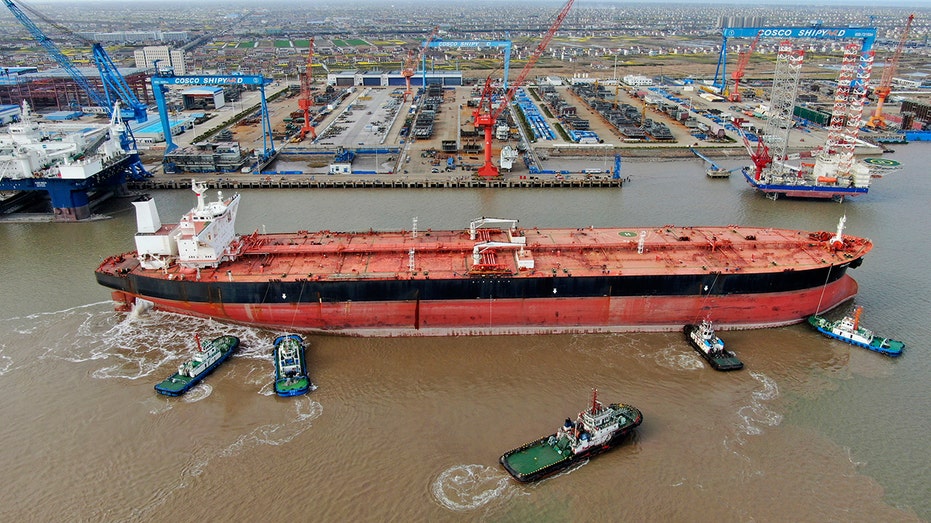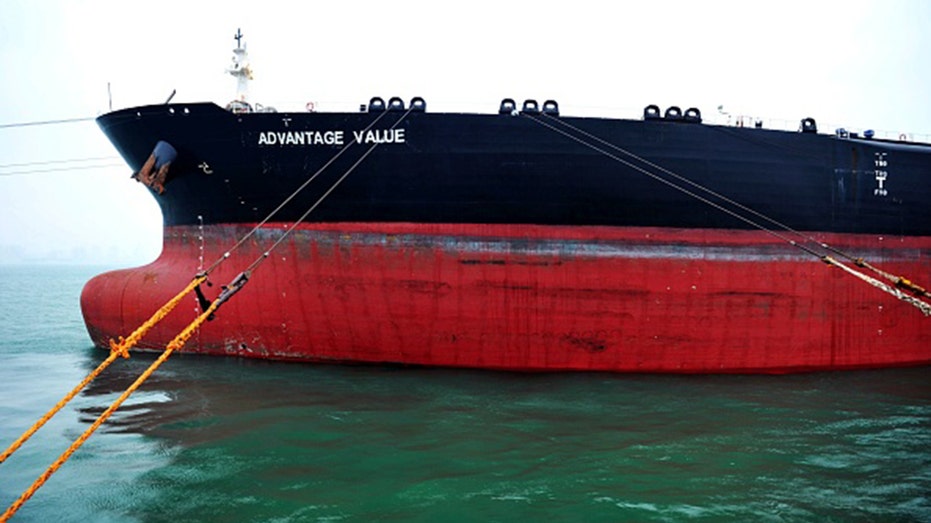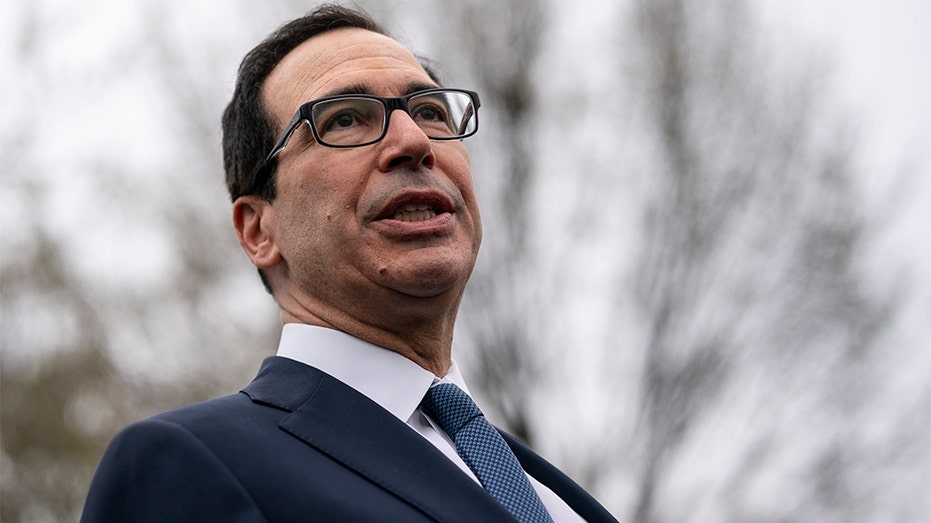As oil piles up, producers look to supertankers for storage
The million-dollar question: When will the oil glut ease?
As demand for oil shrinks amid a global economic shutdown, the resulting supply glut is stretching global storage capacity to its limits, forcing producers to turn to supertankers as backups.
The situation may grow worse before it improves: The U.S. Energy Information Administration reported this morning that crude stockpiles grew by 15 million barrels last week after a 19-million barrel increase the week before – the biggest one-week increase in history.
GAS PRICES TO STAY CHEAP AFTER CORONAVIRUS SLIDE
On top of that, prices in some oil futures hit -$37 this week, and Paul Sankey, managing director at Mizuho Securities, predicts they may reach -$100.
"As we said when we first called for negative prices, the physical reality of oil is that it is difficult to handle, volatile, potentially polluting, and actually useless without a refinery,” he noted.

In this photo taken Monday, March 16, 2020, tugboats push a 300,000-ton very large crude carrier (VLCC) to a shipyard on the Yangtze River for retrofit in Qidong city in east China's Jiangsu province China. (Chinatopix Via AP)
That has created a market opportunity for VLCCs (very large crude carriers), which can hold up to 2 million barrels of oil each and are usually used for transportation. With demand for shipments at a standstill, many of them are now being used as floating storage, buoying operators.
OIL’S MELEE ON TREASURY’S RADAR, MNUCHIN TASKED WITH FIX
Diamond S Shipping’s share price has jumped 25 percent in the last five days.
“We have about 30 percent of the fleet today that is booked up to almost three years,” Diamond S Shipping CEO Craig Stevenson Jr. told FOX Business.

Very large crude carrier (VLCC) tanker Advantage Value unloads crude oil at a crude oil terminal of Qingdao Port on March 26, 2020 in Qingdao, Shandong Province of China. (Photo by Yu Fangping/VCG via Getty Images)
Saudi Arabia is also seeing its oil carriers transition from transportation vessels into storage space at a high rate. Saudi officials estimate that 80 supertankers out of 750 are being used that way. According to commodities data tracker, Kpler, the amount of oil storage at sea rose by 21 million barrels last week.
Storing oil on supertankers is far from cheap. A six-month contract can cost anywhere from $50,000 to $150,000 a day depending on the type of ship and the duration of the agreement. Prices for longer-term storage are typically cheaper because traders believe the supply glut is likely to ease in the coming months.
U.S. Treasury Secretary Steven Mnuchin told FOX Business’ Stuart Varney Wednesday that oil prices will likely be back up to $30 in August.

U.S. Treasury Secretary Steven Mnuchin speaks to the press outside of the West Wing of the White House on March 13, 2020 in Washington, DC. (Photo by Drew Angerer/Getty Images)
But Jefferies analyst Randy Giveans said Mnuchin's forecast may be a bit too optimistic. He told FOX Business that markets are pricing August crude deliveries at $26 a barrel.
“Unless the economy starts back soon and begins working through the massive inventory overhang that is building, we do not expect WTI to reach $30 a barrel by August,” Giveans said.
GET FOX BUSINESS ON THE GO BY CLICKING HERE
The underlying problem for the industry is the misalignment of supply and demand. The coronavirus pandemic has wiped out consumer need for oil. With Americans staying home, gas tanks are not being filled, planes are not being flown and factories are not humming.
The million-dollar question: When will the oil glut ease?
Giveans estimates supply and demand “will balance again this summer, possibly as early as June, especially as global production cuts continue and demand rebounds when the lock-downs are lifted in the coming weeks and months.”
CLICK HERE TO READ MORE ON FOX BUSINESS
FOX Business' Eleanor Terrett contributed to this report




















